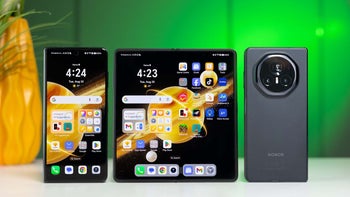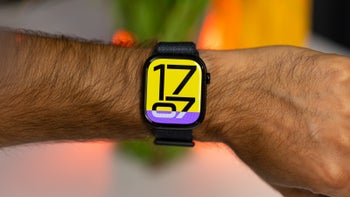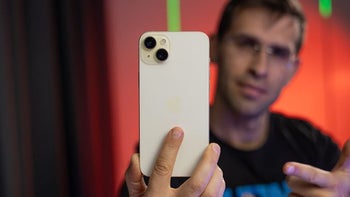Jobs biographer and Larry Page clash; what did Jobs really think about Android?
This article may contain personal views and opinion from the author.

In his recent interview with Bloomberg, Google CEO Larry Page indicated that he felt that Steve Jobs didn’t really mean all of his talk of “stolen product” and going “thermonuclear” against Android, implying that it was more for show, to rally the Apple troops. Jobs biographer, Walter Isaacson, doesn’t agree, and is hitting back. In a lecture at the Royal Institution Isaacson claimed that Page was attempting to "revise history", and said that during the many interviews Isaacson conducted with Jobs his anger was palpable.
Isaacson believes that much of the anger stemmed from similarities with what happened with during the PC wars. Jobs had always wanted to control both software and hardware to create specific user experiences, and when Microsoft “stole” the idea of a graphical interface (note: you can’t patent the broad concept of a “graphical interface”) that was bad but, according to Isaacson, what really upset Jobs was Microsoft’s “promiscuous licensing habits”, wherein they let any company that wished to build generic PC clones running their software.
We wouldn’t recommend Isaacson as a patent lawyer – he seems to believe that Apple should have been able to patent the idea of a responsive touchscreen device – but we have no reason to doubt his impression that Jobs was legitimately angry about the situation when they spoke. At the same time, we’re not quite ready to accept that Larry Page was simply making things up, since he also spoke personally with Jobs, shortly before the tech giant’s death.
Instead it’s probably worth paying attention to the details in both accounts. Larry Page is basing his statements on what Jobs told him as well, but that relationship didn’t really take off until after Page became CEO last year, after many of Isaacson’s interviews were conducted. Isaacson did much of his research when Eric Schmidt, Google’s previous CEO, was at the helm; that’s an important fact, as Steve Jobs expressed personal betrayal at Schmidt, who had sat on Apple’s board of directors when the iPhone and iPad were in development. As recorded by Isaacson, Jobs believed that this influenced the direction that Android took – and Jobs extended Schmidt's perceived betrayal to Android creator Andy Rubin, who was an Apple employee before creating Android.
Larry Page was apparently not held personally responsible, as he and Jobs reconciled in meetings that Jobs personally asked for; Jobs famously told Page he needed to decide what Google wanted to be "when it grew up". There were no reports of Jobs demanding that Page kill Android (which obviously wasn’t going to happen), or otherwise haranguing him with the vendetta he felt against Schmidt.
In the end it’s not difficult to believe that Jobs anger over Android was real, but that it may have been based more on personal relationships and perceived slights than a simple mirroring of PC history. In that sense Page is partially correct – Jobs hatred was not so much at Android per se; instead it was directed at the people he thought ripped him off. On the other hand, we have to agree with Isaacson that the original statements Jobs made about destroying Android were probably made in earnest, reflecting his genuine intention at that point in time. It wasn't for show, it's just that Jobs was hating the players rather than the game.
A careful reading of Isaacson’s book and Page's interview doesn’t suggest that either is making stuff up or trying to revise history. Instead, they paint a more complex picture of Steve Jobs. A Steve Jobs whose outrage wasn’t just for show, but in the end wasn’t so much a death wish for a competing platform as much as it was about the feeling of being betrayed by those you trust. We don’t take sides on whether or not Jobs was correct to feel betrayed, but in the end it suggests he was more concerned about individual relationships than unquestioned market dominance, which is an interesting insight into a legend whose myriad accomplishments often overshadow the man himself.
sources: Macworld, Bloomberg, Steve Jobs by Walter Isaacson
That of course lead to Windows becoming dominant for more than a decade, and Jobs being forced out at Apple. On his return Jobs once again created a closed system with iOS and the iPod, iPhone, etc., only to see (according to Isaacson) Android copy iOS “verbatim”. Isaacson went on to explain that “…then they license it around promiscuously. And then Android starts surpassing Apple in market share, and this totally infuriated [Steve]. It wasn’t a matter of money. He said: ‘You can’t pay me off, I’m here to destroy you.’”
We wouldn’t recommend Isaacson as a patent lawyer – he seems to believe that Apple should have been able to patent the idea of a responsive touchscreen device – but we have no reason to doubt his impression that Jobs was legitimately angry about the situation when they spoke. At the same time, we’re not quite ready to accept that Larry Page was simply making things up, since he also spoke personally with Jobs, shortly before the tech giant’s death.
Instead it’s probably worth paying attention to the details in both accounts. Larry Page is basing his statements on what Jobs told him as well, but that relationship didn’t really take off until after Page became CEO last year, after many of Isaacson’s interviews were conducted. Isaacson did much of his research when Eric Schmidt, Google’s previous CEO, was at the helm; that’s an important fact, as Steve Jobs expressed personal betrayal at Schmidt, who had sat on Apple’s board of directors when the iPhone and iPad were in development. As recorded by Isaacson, Jobs believed that this influenced the direction that Android took – and Jobs extended Schmidt's perceived betrayal to Android creator Andy Rubin, who was an Apple employee before creating Android.
In the end it’s not difficult to believe that Jobs anger over Android was real, but that it may have been based more on personal relationships and perceived slights than a simple mirroring of PC history. In that sense Page is partially correct – Jobs hatred was not so much at Android per se; instead it was directed at the people he thought ripped him off. On the other hand, we have to agree with Isaacson that the original statements Jobs made about destroying Android were probably made in earnest, reflecting his genuine intention at that point in time. It wasn't for show, it's just that Jobs was hating the players rather than the game.
A careful reading of Isaacson’s book and Page's interview doesn’t suggest that either is making stuff up or trying to revise history. Instead, they paint a more complex picture of Steve Jobs. A Steve Jobs whose outrage wasn’t just for show, but in the end wasn’t so much a death wish for a competing platform as much as it was about the feeling of being betrayed by those you trust. We don’t take sides on whether or not Jobs was correct to feel betrayed, but in the end it suggests he was more concerned about individual relationships than unquestioned market dominance, which is an interesting insight into a legend whose myriad accomplishments often overshadow the man himself.
sources: Macworld, Bloomberg, Steve Jobs by Walter Isaacson













Things that are NOT allowed: